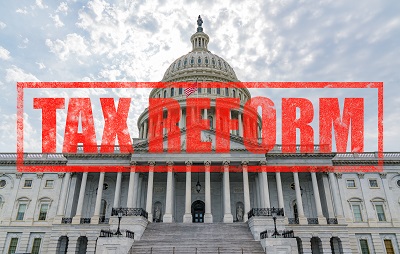Tag Archives: Tax Cuts and Jobs Act
The Service recently responded to widespread confusion surrounding changes made through the Tax Cuts and Jobs Act by announcing that taxpayers can often still deduct interest on a home equity loan, home equity line of credit or second mortgage, without regard to the label placed on the loan. Tax reform imposed a lower limit of […]
You’ve probably seen the large impacts that many publicly traded entities have announced related to the accounting for the Tax Cuts and Jobs Act. It’s important to remember that tax reform’s impact on financial statements isn’t just a large or publicly traded company issue. All corporations need to record the impact of the change in […]
So the Tax Cuts and Jobs Act (the “Act”) is here. While many are focusing on the impact of individual rate reduction and the impact on their itemized deductions, corporations need to assess the impact of the Tax Cuts and Jobs Act on financial statements–specifically on their deferred tax balances as part of the 2017 […]
The tax reform law includes a new Section 199A which creates a deduction for Qualified Business Income (QBI). For tax years 2018 through 2025, an individual Taxpayer may deduct 20% of QBI from a partnership, S corporation, or sole proprietorship. QBI is the net amount of qualified items of income, gain, deduction, and loss with […]

With the final Tax Cuts and Jobs Act now signed by President Trump—and many clients already asking their accountants what they should do this year in light of the bill’s provisions—Surgent’s internal team of tax experts has prepared an all-new professional education course, Critical Tax Reform Update for CPAs: The Tax Cuts and Jobs Act (TACT). This […]

Republican lawmakers released their conference committee report for The Tax Cuts and Jobs Act on December 15, 2017. This compromise tax reform package passed in both the House and Senate the week of December 18th. President Trump’s signature has heralded in the most substantive changes to the tax code in over 30 years. The basic […]




